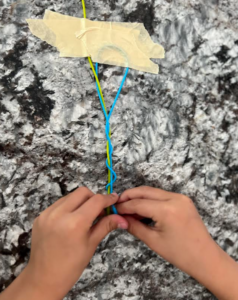Commitment Contacts
From the Panorama Playbook: https://playbook.panoramaed.com/moves/1577
Details:
The "Commitment Contacts" activity aims to foster student agency by having students create contracts that outline their personal goals, challenges, and tasks they wish to master during the school year.
Goals:
The goals of this strategy include:
- To encourage student ownership and self-directed learning by setting and committing to individual goals.
- To build trust and community within the classroom through mutual agreements between students and educators.
Action
Commitment Contracts
serve as a mutual agreement between the educator and the student, emphasizing the importance of community support and ongoing reflection.
Preparation
- Materials Needed: blank sheets of paper for contracts; writing utensils
- Prepare to facilitate a discussion that helps students identify their goals, challenges, and tasks they want to focus on.
Instructions
(1) Explain the concept of a commitment contract and its purpose in fostering student agency and self-directed learning.
(2) Engage the class in a discussion to identify individual goals, challenges, and tasks they wish to focus on during the school year.
(3) Provide students with blank sheets of paper and ask them to draft their commitment contracts. These should include their goals and the steps they plan to take to achieve them.
(4) Once the contracts are drafted, review them together with each student and make any necessary adjustments. Both the educator and the student should sign the contract.
(5) Pair students with a commitment buddy
who they will check in with regularly to discuss progress and challenges.
(6) Set aside time at regular intervals for students to review their contracts and discuss them either individually with the educator or as a class activity.
Implementation Tips
- Treat the contracts as
living documents
that can be revisited and revised throughout the school year. - Use the contracts as a basis for classroom discussions, especially when issues arise that relate to the commitments made, to foster a solutions-oriented approach.
Why this works
Research indicates the importance of mutual agreements and self-regulated learning strategies in promoting student agency and achievement.
Supporting Research
Zimmerman, B. J. (2002). Becoming a Self-Regulated Learner: An Overview.
Theory Into Practice, 41(2), 64–70.


No comments:
Post a Comment